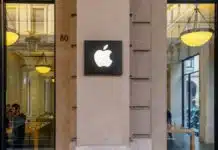5GE vs. 5G: With the term 5GE spreading at a time when 5G is still in its early stages, it’s more important than ever to understand what it actually means and how the two differ. 5GE is an abbreviation for 5G Evolution.
It’s a label that AT&T places on some of their phones to indicate that they’re linked to their 5G Evolution network. Even if you have one device that says 5G at the top and another that says 5GE next to it, they are not linked to the same network, even if they are in the same place and use AT&T’s network.
5G Evolution may sound like a variant of 5G, or perhaps an improvement on it. However, it is merely a name used by AT&T to describe 4G LTE-A. AT&T first used this phrase in late 2018. With 5G discussions heating up around that time, providing their subscribers the impression that they were on a brand new 5G network would distinguish them from competitors such as Verizon and T-Mobile.
However, all this accomplished was to deceive users into thinking they had been upgraded to the new network without acquiring a 5G phone, making modifications to their account, or paying for the new service.
The catch is that some providers also provide an improved version of 4G LTE dubbed LTE Advanced (LTE-A or LTE+). As a result, what we have here could be termed a marketing tactic.
According to AT&T, 5GE is “the foundation and the launchpad for 5G.” So, that right there is enough to explain that it’s not true 5G. It’s the company’s way of bridging the gap between slower 4G and faster 5G. The confusion simply lies in the naming.
5GE vs 5G: Facts
One of the primary reasons behind 5G is enhanced speed and that’s why most people are interested in an upgraded mobile network. Quicker speeds on 5G mean that you’ll experience faster web browsing and downloads, and live streams will be smoother.
5GE
- First used in 2019.
- 5GE stands for 5th Generation Evolution.
- 30 Mbps avg download speeds.
- 1 Gbps peak download speeds.
- Less than 5 ms latency.
5G
- First used in 2018.
- 5G stands for 5th Generation.
- Up to 500 Mbps download speeds.
- 20 Gbps peak download speeds.
- Less than 1 ms latency.
The device itself is another obvious distinction between 5G and 5GE. To be 5G-compatible, one must need distinct devices. This implies that even if a device is in range of a 5G network, if it isn’t a true 5G phone, it won’t be able to enjoy 5G-level benefits (such as faster speeds), even if it says 5GE on the front.
If you’re utilising 5G or 5GE, you’ll need a phone that supports that network. However, just because it supports 5GE does not mean it will be compatible with their 5G network.
Also Read:
- What Does WCW Mean? Why And When Do People Use It?
- How to Fix Hulu Error Code p-dev320 With Easy Steps
- Alexa Having Trouble Understanding Right Now – Solved
5GE vs 5G: What’s the Difference?
At first look, 5G and 5GE appear to be straightforward; sadly, this is not the case. This comparison involves deceptive marketing practices as well as two generations of the internet operating on completely different frequencies.
5G
The latest version of mobile networks is 5th Generation (5G). T-Mobile debuted the next generation of mobile internet in 2018; with new wavelengths, users are able to not only watch videos but also stream them in excellent quality with low latency.
The latest generation of mobile internet operates at multiple frequencies. Whereas 4G employs low-frequency bands (sub-3 GHz), 5G can use both these lower bands plus bands with frequencies of 25 GHz or higher. It uses a number of these higher wavelengths to not only provide faster download rates but also to unclog each wavelength.
5GE
Everyone was thrilled about 5G LTE in 2018, just months before T-Mobile built its first network. They were experiencing quicker download rates than ever before, and internet service providers were scrambling to get their networks up and running.
AT&T, which trailed Verizon by a hair, devised an effective marketing plan. The company published 5th Generation Evolution (5GE) while developing their 5G network. 5GE is a marketing strategy that sold customers on faster internet speeds. It was AT&T’s 4G LTE-A version and should not be considered 5G LTE.























